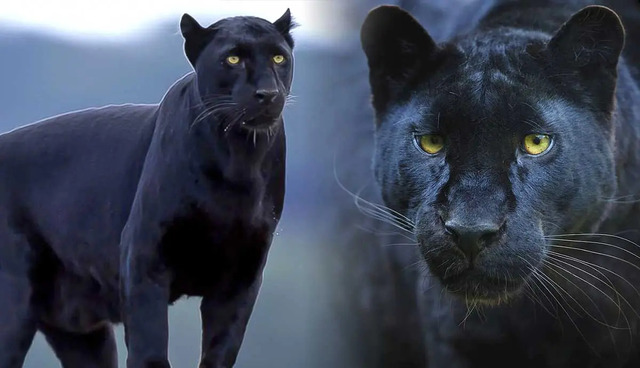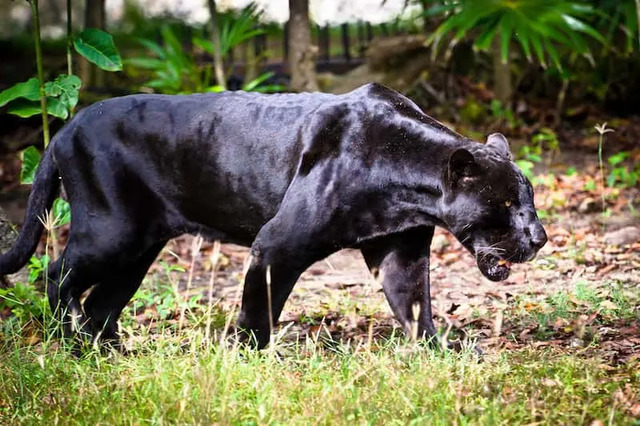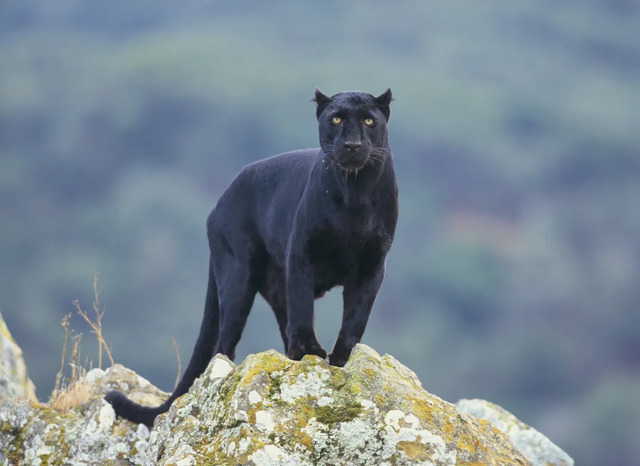Black panthers, known for their sleek, dark coats and elusive nature, are among the most fascinating and mysterious creatures in the animal kingdom. These majestic animals are not a distinct species but rather melanistic variants of leopards (Panthera pardus) in Asia and Africa or jaguars (Panthera onca) in the Americas. Despite their power and adaptability, black panthers are facing an increasing risk of extinction. Here are five critical reasons why these remarkable animals are endangered.

One of the most significant threats to black panthers is habitat loss. As human populations expand, the natural habitats of these animals are rapidly disappearing. Deforestation, driven by logging, agriculture, and urban development, is particularly devastating. Vast areas of forests, swamps, and grasslands, where black panthers once roamed freely, are being cleared at an alarming rate.
Habitat fragmentation compounds the problem. When large, continuous habitats are divided into smaller, isolated patches, black panthers lose not only their hunting grounds but also access to potential mates. This fragmentation reduces genetic diversity and increases the risk of inbreeding, further endangering the population.
Poaching is another grave threat to black panthers. Their rare and beautiful fur is highly sought after in illegal wildlife markets. Despite international laws and conservation efforts, the demand for exotic animal skins continues to drive poaching activities. Black panthers are also hunted for their body parts, which are used in traditional medicine and as trophies.
The impact of poaching on black panther populations is severe. The loss of even a few individuals can have devastating consequences, especially in small, isolated populations. Poaching not only reduces their numbers but also disrupts the social structure of panther groups, making it harder for the species to survive and thrive.

As human activities encroach further into the natural habitats of black panthers, encounters between humans and these animals have become more frequent. This often leads to conflict, particularly in areas where panthers may prey on livestock. For farmers and local communities, the loss of livestock can be a significant economic blow, leading to retaliatory killings of panthers.
Retaliatory killings are a serious problem. When black panthers are perceived as threats to human livelihoods, they are often hunted or poisoned. This not only reduces their numbers but also increases the animosity between humans and wildlife, making it more difficult to implement effective conservation strategies.
Black panthers rely on a steady supply of prey, such as deer, wild boar, and smaller mammals, to survive. However, these prey species are also under threat. Overhunting by humans, coupled with habitat degradation, has led to a significant decline in the populations of these animals.
As prey becomes scarce, black panthers face starvation and weakened reproductive rates. A reduced prey base also forces panthers to venture closer to human settlements in search of food, increasing the likelihood of human-wildlife conflict. The decline in prey species creates a vicious cycle that further endangers black panther populations.
Climate change is an emerging threat that affects nearly every species on the planet, and black panthers are no exception. Changes in weather patterns, temperature, and precipitation can alter the habitats where these animals live. As their environment changes, black panthers may struggle to adapt, particularly if their habitats become less suitable for hunting or breeding.
Climate change can also affect the availability of water and vegetation, which in turn impacts the distribution and abundance of prey species. In the long term, these changes could force black panthers to migrate to new areas, where they may face competition with other predators or be unable to establish new territories.

The black panther, a symbol of power, mystery, and grace, is facing a perilous future. Habitat loss, poaching, human-wildlife conflict, decline in prey species, and climate change are all contributing to the endangerment of these magnificent animals. If we are to ensure their survival, urgent and comprehensive conservation efforts are needed.
Protecting the habitats of black panthers, enforcing anti-poaching laws, and promoting coexistence between humans and wildlife are critical steps in this effort. By supporting conservation programs and raising awareness about the challenges these animals face, we can help preserve black panthers for future generations to admire and respect. The fate of these extraordinary creatures lies in our hands, and it is up to us to take action before it is too late.
animal tags: Black-Panther
We created this article in conjunction with AI technology, then made sure it was fact-checked and edited by a Animals Top editor.